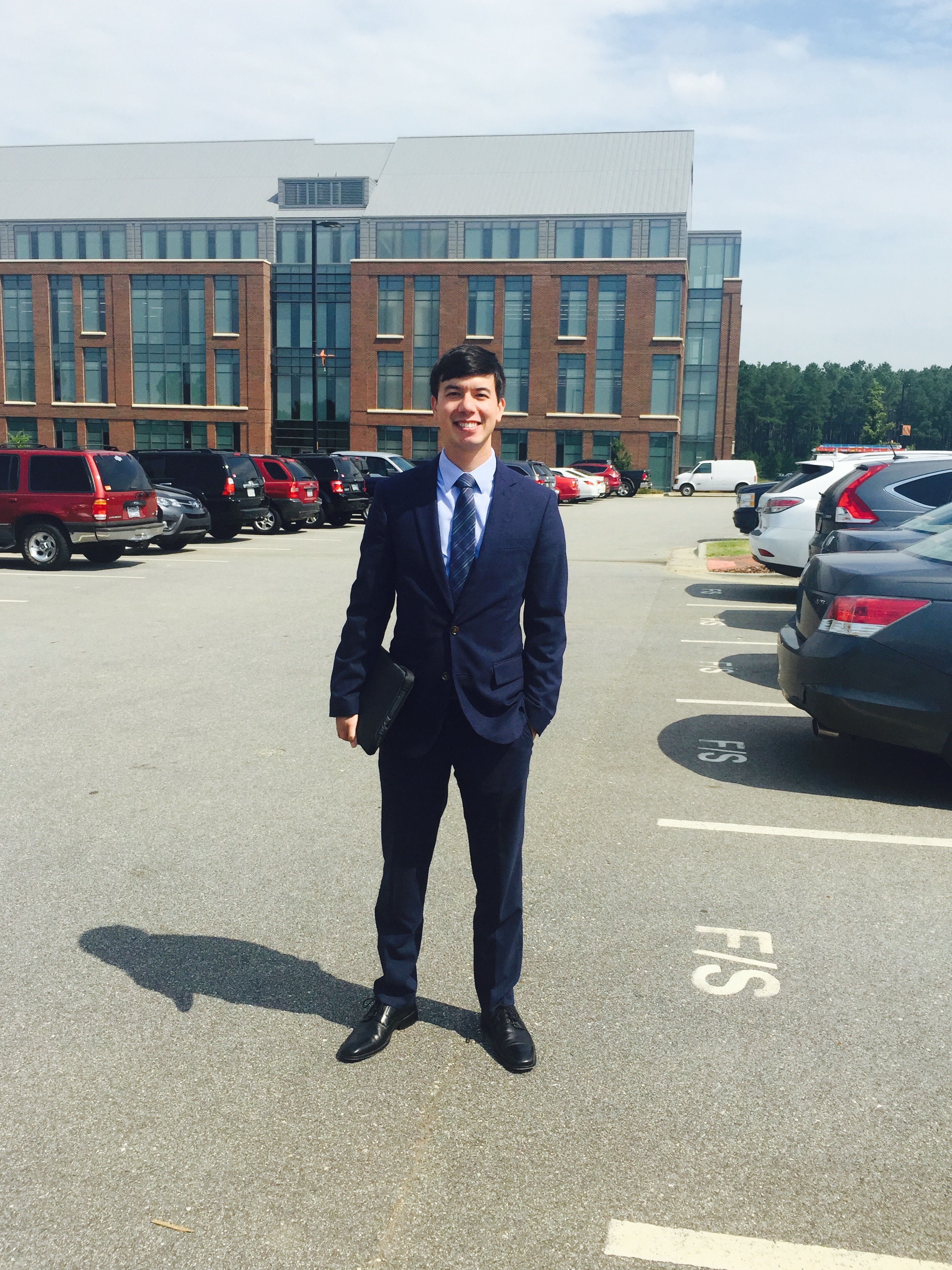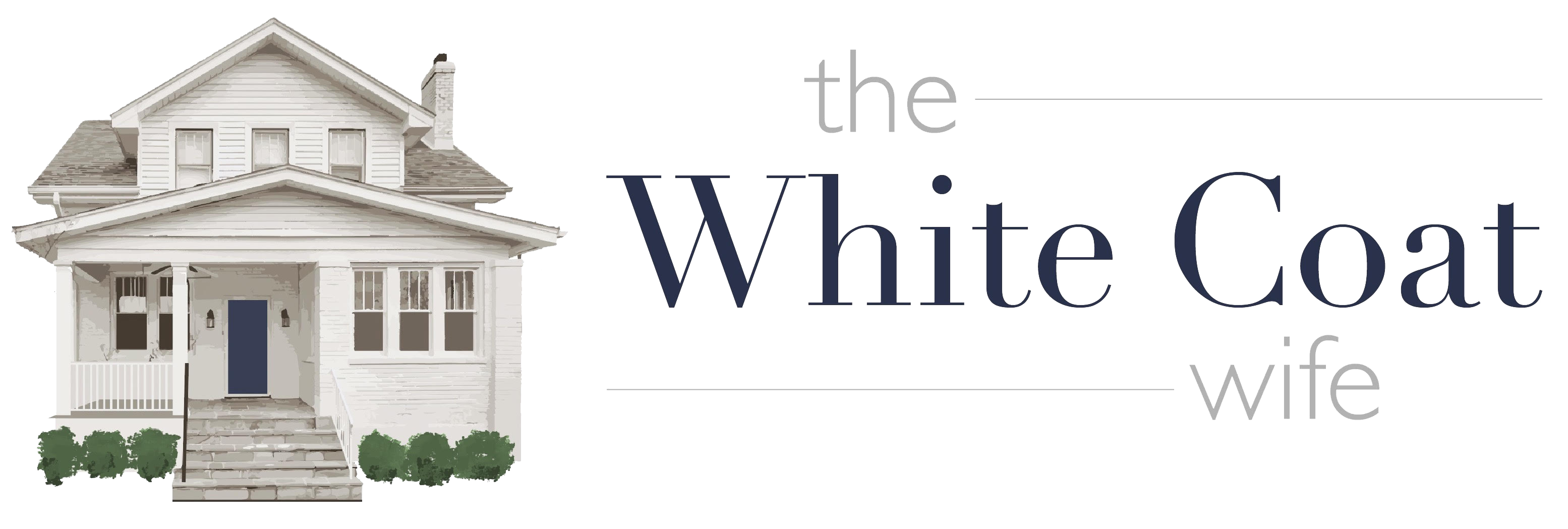Applying to medical schools often feels like this photo. Tom, my husband, has worked really hard and by God’s grace has balanced his relationship with God, family, and medicine over the past three years. Today he is generously taking time to share his experience and perspective, so that you might feel less like a penguin and know how to stand out.
The whole process of taking the MCAT exam, submitting primary and secondary applications, and attending interviews is designed to take up to one year. Let me honestly tell you… it is exhausting. During this whole process I found myself repeatedly thinking, “Is this really worth it?” I remember how excited I was to submit my personal statement and primary application to my first 15 medical schools. I was rather arrogant and thought that I would surely get interview invitations from a majority of the schools I applied to. Secondary application invitations rolled into my email inbox the week after our wedding. We left for our honeymoon in the Dominican Republic and I decided that I would hold off on thinking about medical school applications until we returned home. When we got back, I opened up all the secondary applications from all the schools I had sent a primary application to. It wasn’t long before I realized that it was just another series of more essays to write, with some medical schools asking for 7-8 more short essays just for their secondary application. I wanted to be a doctor, not a writer, but this was a necessary challenge I had to undertake in order to pursue the career any further. There were several evenings spent on researching more about each medical school I applied to, self-reflecting on why I thought I was a good fit for their program, and re-writing essays. My wife was a huge source of support and encouragement during this time, which made me so thankful to be married. I finally finished my secondary application essays and submitted them to the respective schools. I was confident I would hear back shortly from many of them offering me interviews. A month or two went by without a single interview invitation and I was starting to get worried. Surely, it was just due to the large volume of applications they receive.

On my way home from work, I received an email notification on my phone. It was an invitation to interview! I was ecstatic. I started reading countless books, articles, and forums on how to ace my medical school interview, then I started practicing repeatedly while trying to imagine any question they could throw at me. I remember showing up to my first medical school interview after driving several hours to get there. It was a group interview with four faculty members. Walking into the room filled me with a mixture of feeling excited and intimidated. They drilled me with questions. Some were expected, while others caught me off guard. Overall, I left the interview confident that I had nailed it. I felt that I was a great fit for their school and was certain that I had a strong chance of getting accepted. This was my first reality check of how competitive medical school is. Two weeks after my interview, I received another email stating that I was waitlisted. I couldn’t believe it. I did everything according to the book and felt like the interview went great.
I had the same experience with another school and was waitlisted again. I started to wonder if I had what it takes to become a doctor. I had read the horror stories about people applying 6-8 times before they got accepted into a medical school. This is when I started to understand that getting waitlisted did not mean I was unfit to become a physician. The complexity of the medical school application process is that there are so many qualified applicants with exceptional life experiences, grades, MCAT scores, research publications applying for a limited number of seats at each school, that the determining factor for acceptance often becomes very subjective. I learned that the admissions department at each respective school is very good at determining which applicants will be a strong fit for their institution. Just because I was not accepted at a specific school, did not mean I was unfit for all medical schools. So then applying to medical school becomes a matter of applying broadly to find the right medical school that matches your personality and gifts.
Late in the application cycle, I started to do more research into osteopathic medical schools. In the United States, there are two types of medical schools to become a physician. Allopathic and osteopathic medical schools have very similar curriculums, but differ in their philosophies on how to approach medicine. The more I learned about the osteopathic approach to medicine, the more interested I became in it. Compared to allopathic medical schools, the osteopathic approach emphasized taking into consideration the health of a patient’s body, mind, and spirit as whole and how these different aspects in a patient can influence their current illness. In addition to the similar curriculum I would receive at an allopathic school, osteopathic schools offered training in osteopathic manipulation, which is a manual skill set that can be used to diagnose and treat many diseases with our hands that can be done apart or in conjunction with pharmacological treatment. I loved their approach to medicine, so I decided to apply to 13 osteopathic medical schools.
Within a month, I received six interviews. The first interview I attended was for a waitlist spot because it was late in the cycle. The medical school was located in my home state and I fell in love with the school and faculty during the orientation. It was my favorite interview experience by far. My interviewers were very understanding of my situation as a non-traditional applicant (being out of undergraduate for 5 years) and offered a ton of encouragement telling me I would make a great physician. This was a drastic difference from my interview experiences at other schools. Only a few days after my interview, I was notified of my placement onto the waitlist and then a week later, I received an acceptance letter to Campbell University School of Osteopathic Medicine!
By my 2nd year of medical school at Campbell University and loved every moment of it. The workload in medical school is definitely time-consuming and requires sacrifice not just from me, but from my family also. So when you apply for medical school, make sure that this is exactly what you want and that you are all-in. Working in a clinic and having a physician mentor really helped solidify that decision for me. If you are sure that this is the path you want to take, then be encouraged that the investment is worth the wait. There are few other careers in this life that allow you to help people in such exceptional ways while challenging your mind as you learn so much about the human body and related diseases.



